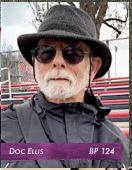I was a member of the Agua Dulce Town Council (ADTC) 1997-2003. The ADTC is a deliberative advisory body with no legislative or tax-levying authority. Council Members serve community stake-holders
- to facilitate community stake-holder consensus
- to discuss community stake-holder concerns
- to represent community stake-holders before other bodies
- to review proposals affecting community stake-holders
- to maintain political neutrality
These comments, especially #1, 4, 5, and 6, come directly from my experiences then. They pertain primarily to the ADTC and other such like bodies.
- Read the ADTC Charter and By-Laws outside of the TC meetings. Focus on learning what is in those documents. When a fellow council member tries to act outside of the documents, you will know that, and you will be able to remind him. You will also know what you can and cannot do within those documented rules.
- I did not read the Charter and the By-Laws until my third term (2001-2003). I had no understanding when someone was acting outside the limits of these documents.
- You are just a listener. Pay attention to the best of your ability to constituents and other speakers. Your job is to tell government agents and/or officials what folks in this community have to say. You are a conduit.
- Remember that you have no authority to tell or coerce other folks to obey you. A lot of folks get on the town council with the idea that they are gonna make things happen according to their own agendas. Leave your agenda outside the council.
- Be prepared now to stand up for your constituents in the event that town council members or government folks try to violate the constituents.
- A constituent asked for my help in getting on the agenda to present his case before the TC (2001). I failed to do this because I had not prepared to go to bat for constituents before they needed me and because I had not read the Charter and the By-Laws.
- Be prepared now to refuse to let other town councilmembers run over you or fail to follow through on task-related agreements that they have made with you.
- I never signed any checks while I was treasurer (2001-2003) because I allowed the Presidents to run me around on helping me get authorisation transfers. One President did not keep the one appointment that I made for us to get the account bank to transfer signature authorisation to us and I gave up on him. The other President did not ever keep his promise to get the change-of-authorisation letter to the account bank written. I was responsible for writing the letter and I gave up on him, too.
- Read the Rural Town Councils Guide Book. There is a wealth of information in there.
- Be aware that pursuant to Johnson et al v ADTC 2007, the information on page 29 does not currently apply. The ADTC is governed by the Brown Act. Read up on that Act.
- Provide contact information, such as a phone number or an e-mail address. You can get a cheap disposable phone for the phone contact or you can get a disposable e-mail address for free if you are concerned about privacy. The contact information provides credibility to you and to the proposition that you are concerned about issues that bother your constituents.
- Leave your expectations outside the door and remember: this too shall pass.



